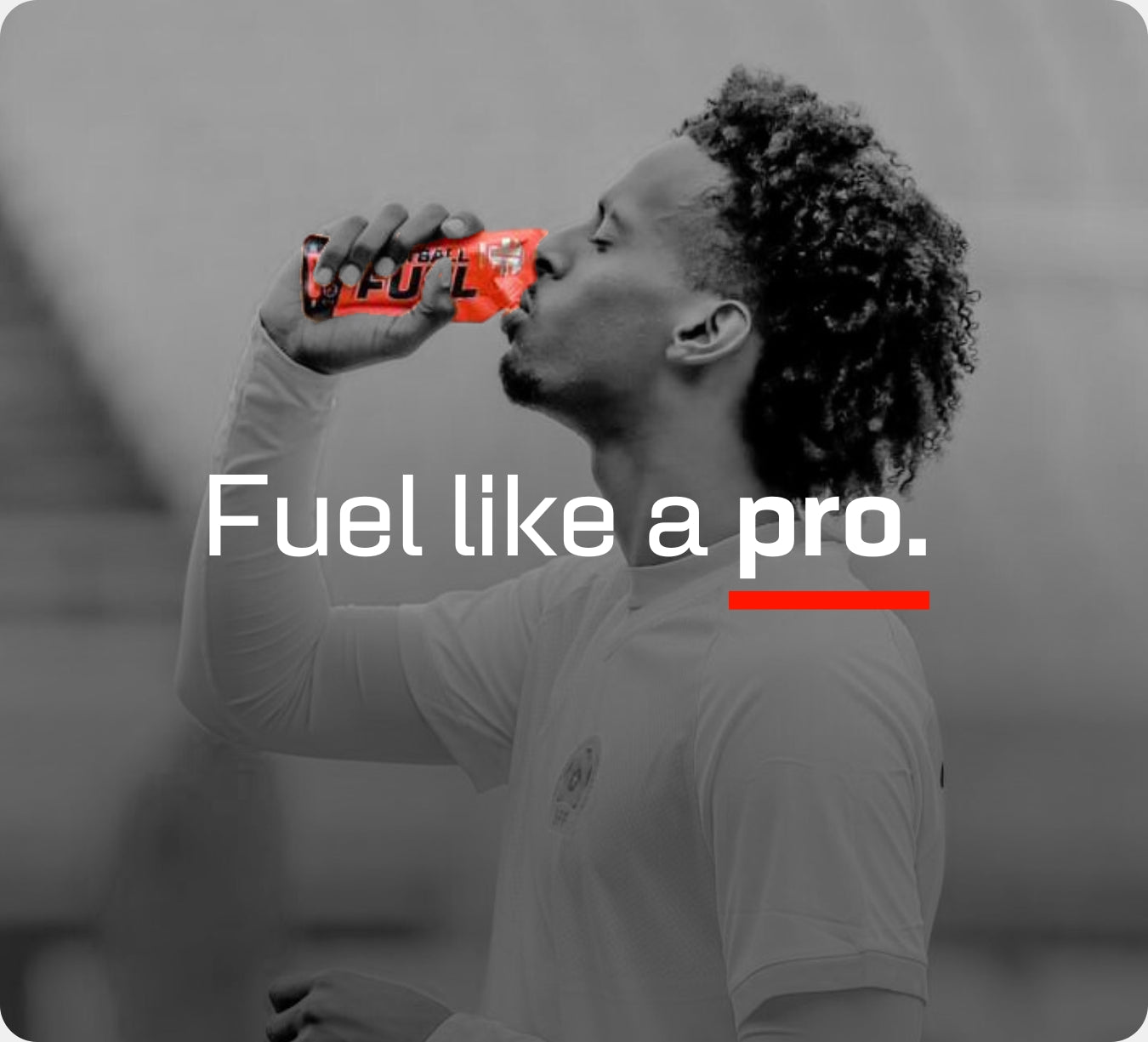The Pre-Match Ritual
Professional footballers around the globe share a common weapon before hitting the pitch — caffeine. In fact, a staggering 97% of them turn to this natural stimulant for its undeniable performance benefits.
Player Awareness
One of the key reasons caffeine is a staple in footballers' kitbag is its ability to heighten focus and sharpen decision-making skills. In football, split-second decisions can make all the difference, and caffeine ensures players stay razor-sharp when it matters most.
Fight Fatigue, Boost Endurance
Football is a demanding sport that requires sustained energy levels throughout the match. Caffeine acts as a fatigue-fighting champion, reducing tiredness and increasing endurance by blocking the neurotransmitter adenosine. This action prevents the sensation of tiredness. Additionally, caffeine stimulates the release of adrenaline and dopamine, neurotransmitters associated with increased energy levels and improved mood, further contributing to its fatigue-fighting effects.

Caffeine Sources (Ranking)
3. Synthetic Caffeine:
Most of the energy drinks and pre-workouts you see contain a synthetic caffeine, otherwise known as "caffeine anhydrous" which can cause jittering and crashes.
2. Coffee:
On the other hand, the caffeine content in coffee can vary widely based on factors such as the type of coffee bean, brewing method, and serving size.
Precision in caffeine dosage is crucial for athletes seeking optimal performance, and this precision is often challenging to achieve through common sources like coffee. This variability makes it difficult for individuals to accurately gauge their caffeine intake and tailor it to their specific performance needs.
1. Green Tea Extract:
A meticulously formulated product like PRE-MATCH eliminates the guesswork. By delivering a trusted 200mg dose of natural caffeine (from green tea extract), footballers can confidently consume the exact amount proven to enhance focus, reduce fatigue, and improve overall mental and physical performance.
This attention to detail ensures that players can harness the benefits of caffeine without the uncertainty associated with traditional or artificial sources, allowing them to fine-tune their performance with confidence and precision.
When Should I Consume Caffeine?
Around 30-45 minutes prior to activity is typically considered the ideal window for caffeine consumption. It allows enough time for caffeine to be absorbed and reach peak levels in the bloodstream, coinciding with the start of a match or training session.
How Much Caffeine Should I Consume?
A performance-based caffeine dose falls within the range of 2 to 3 milligrams per kilogram of body weight. This dosage has been associated with athletic performance benefits and is less likely to cause side effects. Anything over 5mg/kg you will begin to see performance decrements.
Can I Use Caffeine Before A Strength/Gym Session?
Yes, using caffeine prior to strength and conditioning sessions in the gym can enhance performance by increasing alertness and reducing perceived effort.
Considerations
Caffeine sensitivity varies among individuals. Some may feel the effects with lower doses, while others may need higher amounts. It's advisable to start with a moderate dose and adjust based on personal response.
Caffeine's half-life is typically around 4 to 6 hours. To avoid potential sleep quality issues, it's generally recommended to try avoid consuming caffeine at least 6 hours before bedtime.
The Verdict
The prevalence of caffeine use among professional footballers is no coincidence.
It's a deliberate choice backed by science, and if you want to enhance focus, fight fatigue, and elevate both physical and mental performance, then caffeine should be an essential in your kitbag.
PRE-MATCH packs a powerful 200 mg of caffeine alongside other nootropic ingredients in a convenient gel formula. Try it for yourself and take your game to new heights.

References:
1. Tallis J, Clarke N, Morris R, Richardson D, Ellis M, Eyre E, Duncan M, Noon M. The prevalence and practices of caffeine use as an ergogenic aid in English professional soccer. Biol Sport. 2021 Oct;38(4):525-534. doi: 10.5114/biolsport.2021.101125. Epub 2021 Jan 14. PMID: 34937961; PMCID: PMC8670797.
2. Mielgo-Ayuso J, Calleja-Gonzalez J, Del Coso J, Urdampilleta A, León-Guereño P, Fernández-Lázaro D. Caffeine Supplementation and Physical Performance, Muscle Damage and Perception of Fatigue in Soccer Players: A Systematic Review. Nutrients. 2019 Feb 20;11(2):440. doi: 10.3390/nu11020440. PMID: 30791576; PMCID: PMC6412526.
3. Hespel P, Maughan RJ, Greenhaff PL. Dietary supplements for football. J Sports Sci. 2006 Jul;24(7):749-61. doi: 10.1080/02640410500482974. PMID: 16766503.
4. Lara B, Gonzalez-Millán C, Salinero JJ, Abian-Vicen J, Areces F, Barbero-Alvarez JC, Muñoz V, Portillo LJ, Gonzalez-Rave JM, Del Coso J. Caffeine-containing energy drink improves physical performance in female soccer players. Amino Acids. 2014 May;46(5):1385-92. doi: 10.1007/s00726-014-1709-z. Epub 2014 Mar 11. PMID: 24615239.





